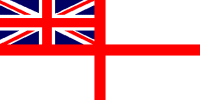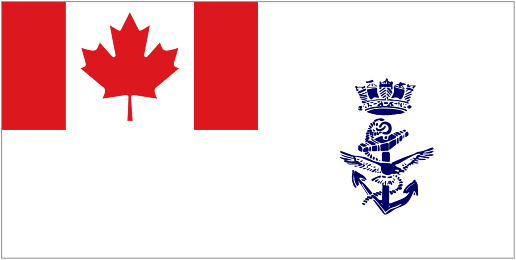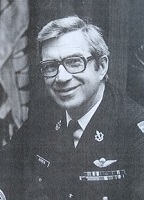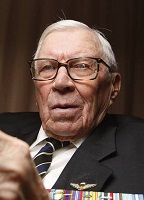|
A Royal Canadian Navy Historical Project
In memory of those who have Crossed the Bar
BOWEN, Gerald Reidy - It is with great sadness that the Bowen family announce the passing of Gerry, while at his residence at the Perley Rideau Veterans Center in Ottawa, on May 19, 2020. Gerry shared his life with two remarkable wives: Jean West and Helen Rapp. Taking into consideration the ongoing community health pandemic and Gerry's wishes, a funeral service will not be held. A Memorial Service to celebrate Gerry's life and his many accomplishments will be held when both appropriate and safe to do so. The details of the Service will be provided closer to the selected date in a comprehensive obituary; in all likelihood, later in the summer or early fall of this year. We look forward to welcoming his many friends and relatives and those associated to his extended military family, the Royal Canadian Legion, the Canadian War Museum, Parks Canada and other community programs that Gerry dedicated his service to. At that time, a fund will be established to receive donations in Gerry's memory for the Perley Rideau Veterans Center (veterans wing). A very special thank you from the Bowen and Rapp family to all of the dedicated professionals who work at the Rideau Perley Veterans Center. Their dedication to Gerry in these last days was extraordinary, to say the least, and the kindness, compassion and friendship they gave him over the past seven years was wonderful. Regardless of where they worked within the Perley, staff from nursing, chaplaincy, cafeteria, food services, maintenance, administration, and technical support all collectively made our father's experience at the Perley truly something special. Until such time as the Memorial Service takes place, if you wish to leave a message for the family you may do so by text message at 613-809-0610. Hope to see all of you this fall. Please stay safe... it is what Gerry would have wanted more than anything else.Condolences / Tributes / Donations Hulse, Playfair & McGarry www.hpmcgarry.ca 613-233-1143 Published on May 23, 2020
Second World War, Korean War veteran was longtime volunteer at the Canadian War Museum Andrew Duffy, Postmedia News (aduffy@postmedia.com) Published: Jun 04, 2020 Copyright Postmedia Network Inc., 2020
Ottawa’s Gerald Bowen felt so at home in the Canadian military that after serving in the navy during the Second World War, he enlisted in the army and fought in the Korean War. “I think maybe, you know, I liked that disciplined life,” Bowen once said, “and I always felt that, in the military, you knew what you had to do.” He spent 33 years in the military and served in Cypress, Israel, Lebanon and Germany before retiring as a major. In retirement, he became a dedicated volunteer at the Canadian War Museum and a fixture at National Remembrance Day ceremonies. Bowen died last month at the Perley and Rideau Veterans’ Centre. He was 94. One of his three sons, Greg Bowen, said his father was always a good listener: intelligent, wise and ready with advice. “When he had heard enough grumbling from his boys, he would be quick to tell us, candidly, to stop complaining and do something about it,” Greg Bowen said. “He was one of the good guys.” Gerald Bowen grew up in Centretown where he delivered newspapers for the Ottawa Citizen. On the morning of Sept. 4, 1939, he carried news of the outbreak of the Second World War. People ran out of their homes to meet their papers. Bowen and six of his young friends, all 13 or 14 at the time, worried that the war would end before they had the chance to fight. “Before the war was over,” Bowen later recalled, “four of those boys were dead.” While still a student at Lisgar Collegiate Institute, Bowen forged his baptismal certificate and enlisted in September 1942. His war began on HMCS Royalmount, a frigate responsible for guarding supply ships as they travelled across the Atlantic. German U-boats hunted the convoys in “wolf packs” to overwhelm their defences. By mid-1942, their attacks were threatening to drive Britain from the war: One Allied supply ship was going to the bottom of the ocean every four hours. As a telegraphist, Bowen’s action station was deep within the ship, just above the propeller, in the emergency wireless room. His job was to message for help if the main wireless cabin was damaged. “The only consolation,” he told an interviewer, “was that if the Germans launched an acoustic torpedo which homed in on the ship’s screws, I wouldn’t know anything about it.” U-boats usually attacked at night and Bowen remembers the horror of seeing an oil tanker explode in the darkness. Four crew members survived the blast, but they were so slick with oil that they had to be fished out of the water by their hair. Bowen’s closest brush with death came during shore leave in January 1945. He was staying at a London boarding house and had just settled into the first-floor bathroom when a German V2 rocket - the world’s first long-range ballistic missile - slammed into the neighbourhood. The blast wave threw Bowen off the toilet, out the door, and onto the floor in front of his screaming landlady. “I never knew if she was screaming because of the fact half her house was gone,” he later recalled, “or because I was lying there half-naked.” After the war, Bowen left the navy and joined the public service, but he didn’t like the drudgery of office work. So in 1948, after getting married, he enlisted in the army, trained as a paratrooper, and was commissioned as an officer. He served with the Royal 22nd Regiment - the Van Doos - in the Korean War, where he was involved in night patrols, mine clearance, enemy raids and defensive battles. In retirement, Bowen became a voracious reader - he was a student of history - and volunteered at the Canadian War Museum, where he served as an interpreter for two decades. He loved to share his experiences with visitors, and was among last Second World War veterans to work at the museum. Ashlee Beattie, training co-ordinator at the museum, said Bowen was a kind and humorous man who connected quickly with people. “Never have I met someone who so appreciated the people and friends in his life,” she said. “He always seemed capable of accepting the hardships of life with a can-do attitude - and an encouraging smile for others.” Bowen often told her, she said, that that he had lived a good life and held no regrets.
Major Gerald (Gerry) Bowen, RCN, GGFG, R22eR, RCR, PPCLI (Reserves), Parks Canada, Royal Canadian Legion
1939-1945 Star, Atlantic Star with France & Germany bar, Canadian Volunteer Service Medal & clasp, War Service medal, Canadian Korean Medal (with MiD Oak Leaf), Korean Volunteer Service Medal, Special Service Medal with NATO bar, UN Korea Medal, UN Cyprus Medal, Canadian Forces Medal (with 2 bars), Parachute Wings, UN Peacekeeping Medal, Golden Jubilee Medal, Diamond Jubilee Medal.
Gerry Bowen died May 19, 2020 in Ottawa. He was 94.
Gerry was born in 1925, and grew up in Centretown, playing "soldiers" in the back yards, hitching a ride to school on tradesmen's sleighs in winter, and playing street hockey with frozen horse "pucks"! Saturday nights were spent curled up in a chair by the radio, listening to the hockey game, eating a McIntosh toffee bar and drinking ginger ale. Or lining up his rows of Britain's toy soldiers and marching them the length of the sofa.
Gerry attended Lisgar Collegiate where some of his classmates eventually returned as teachers -two of whom taught his son Don in later years. Gerry and his brother Desmond and their cousin Norm were best friends for life, playing hockey at Lisgar and joining the cadet corp. During the 1939 Royal Visit to Ottawa, Lisgar's cadet corp lined the processional route, and Gerry swears that the Queen looked directly at him with a special smile. He remained devoted to the Queen Mother his entire life.
On the day World War II broke out, Gerry was an Ottawa Journal paperboy. He recalled customers running out of their house in pyjamas to get the paper from him that day. Like so many other young men, he was determined to sign-up, and forged the date on his baptismal certificate in order to appear old enough. The recruiters looked him over and said he was too under-weight. The medics asked Gerry if he had any money, and he willingly produced what little he had, thinking that he had to pay a bribe to be approved! The medic stared at Gerry, then directed him to go buy as many bananas and Pepsis as he could, consume them all, and come back to be re-weighed. Gerry did, and returned an hour later...he made the weight!
Gerry spent the war as a telegraph operator on an RCN frigate on North Atlantic convoy duty. The telegraph post was deep in the ship, next to the propellers. "If we were torpedoed, at least I wouldn't know we'd even been hit", he quipped.
His military career continued for 33 years. He served as a platoon commander in Korea with the Royal 22nd Regiment (The Van Doos), and while in Korea was recognized for Gallantry in Action and was Mentioned in Dispatches with Oak Leaf. He was also recognised for famously shooting a rat that was trying to steal his chocolate ration!
After Korea, Gerry moved to the RCR, where he served for many years. He earned his paratrooper patch, and also went on to become a member of the Canadian Airborn Regiment. Gerry was also "the last soldier ever wounded with a sabre" when during a 1967 military tattoo, a sailor's sabre hit the cement floor and shattered, the broken bit flying up to cut Gerry's head. The injury didn't get him a medal, but he did get a message from Buckingham Palace!
In February 1947, Gerry and an army pal went on a double-date, skating in Minto Park. Gerry's date was Jean West, a student-nurse at the Civic Hospital. It seems to have been a great connection: six weeks later they were engaged, and they married on July 5 of that year. Jean and Gerry had an enviable forty-eight years together, until Jean died in 1995.
At her funeral, the Chaplain General of the Armed Forces commented that with the Army "There's no life like it -and there's no Wife like it". Gerry was posted regularly, including stints overseas, and Jean became adept at packing and moving, managing the boys and dogs, and truly held the household together.
Gerry and Jean had three sons: Don, retired from RCMP and Calgary Police; Greg; retired from RCMP in Ottawa; and Christopher, a high school French teacher in Hamilton. The boys grew up on backyard rinks and scout camps, hockey games and family trips, wrestling with the dog and fishing in the Canan river. His sons have memories of Gerry standing outside at night, in the frigid Edmonton winter, watering the backyard rink.
He loved a can of beans, porridge, and chicken pot pie. He wouldn't touch jello. He loved Christmas with his family and his grandchildren. He rooted for the Edmonton Eskimos and was frequently heard yelling "you dough-head!" at the ref on TV.
Gerry retired from the Armed Forces in 1971, and found a second career which he loved: working with Parks Canada in historic sites.
In 1973, Gerry and Jean settled in Bridgetown, Nova Scotia, and bought the first home they had ever owned. For nine years, Gerry was Superintendent of Port-Royal National Historic Park, making a daily commute in his bright blue Mazda 808. At Port-Royal he initiated a process of change from "museum" to living history, and was especially interested in designing school programs. In 1978, National Geographic mentioned Gerry and Port-Royal in an article on Nova Scotia -then sent him 12 commemorative copies. He couldn't think of anyone who'd want a copy. His Parks Canada career continued in Fort Langley BC, where Gerry did programming for the old Hudson Bay Company fort, and then on to Fort Rod Hill in Victoria.
Finally retired, he continued to be active in the Legion, and militia ("playing Army", as Jean called it), and in Veteran's causes. Jean died in 1995. Gerry and Jean are buried together in the cemetery in her hometown, Coles Island, NB.
Gerry married again in 1998, to Helen Rapp, an out-going veteran he met through the Legion. They volunteered at the Canadian War Museum, where he was an in-demand guide. Even fidgety school kids would sit still when Gerry recounted some of his war-time experiences -especially the rat story! He also became something of a gad-fly advocating for veterans' causes. Regardless of which party formed the Government, the Minister of Veterans Affairs got to know Gerry and Helen pretty quickly!
Gerry and Helen travelled widely throughout Canada and Europe, exploring their shared interest in military and Canadian history. They attended D-Day commemorations in Normandy, and ceremonials at Vimy Ridge. Through Helen, Gerry suddenly had a large extended family of children and grandchildren and in-laws, all of whom loved to spend time with "Grand-Jerry". Helen's children took warmly to Gerry, and he was always happy to hear of their adventures.
Helen died suddenly in 2013, and Gerry spent the last years in the Pearly-Rideau veterans' home, where he was much-loved by the staff for his sense-of-humour and his outlook. As he repeatedly told his sons: complaining about things serves no purpose; either do something about it, or go do something else. The chaplains, Jessie and Fr. Paul, used to love hearing Gerry's stories and wry comments, as he held court every morning in the cafeteria.
Due to the pandemic, no funeral was held. Memorial donations may still be made to the Pearly-Rideau. (Ottawa Citizen 22 May 2021)
Ships served in:
|
 For Posterity's Sake
For Posterity's Sake 

